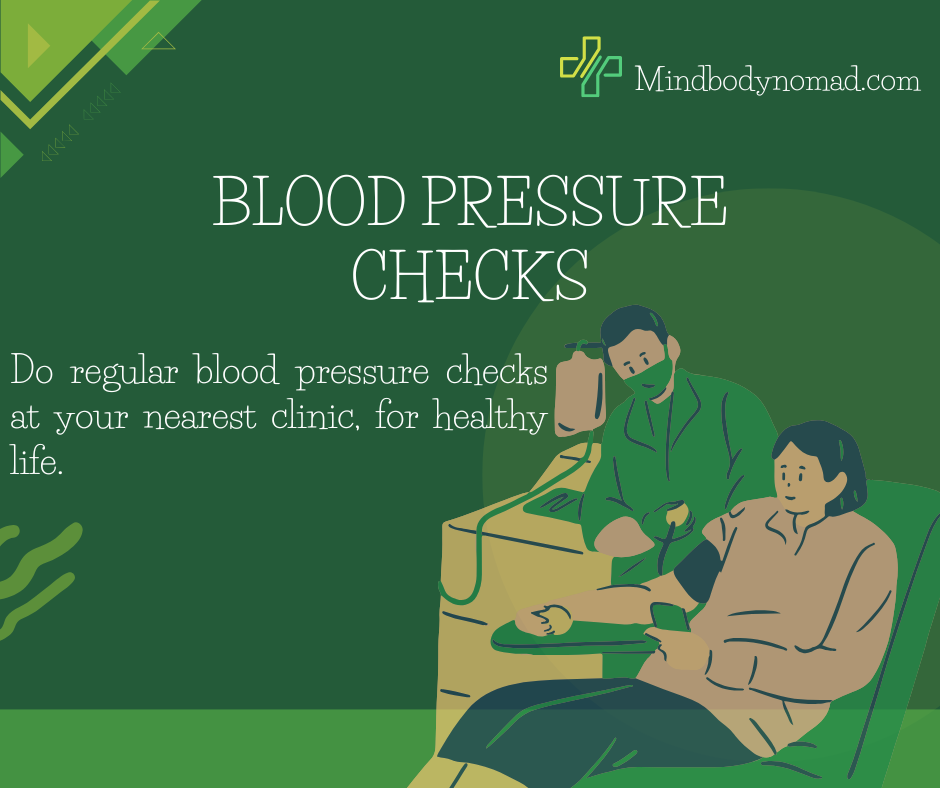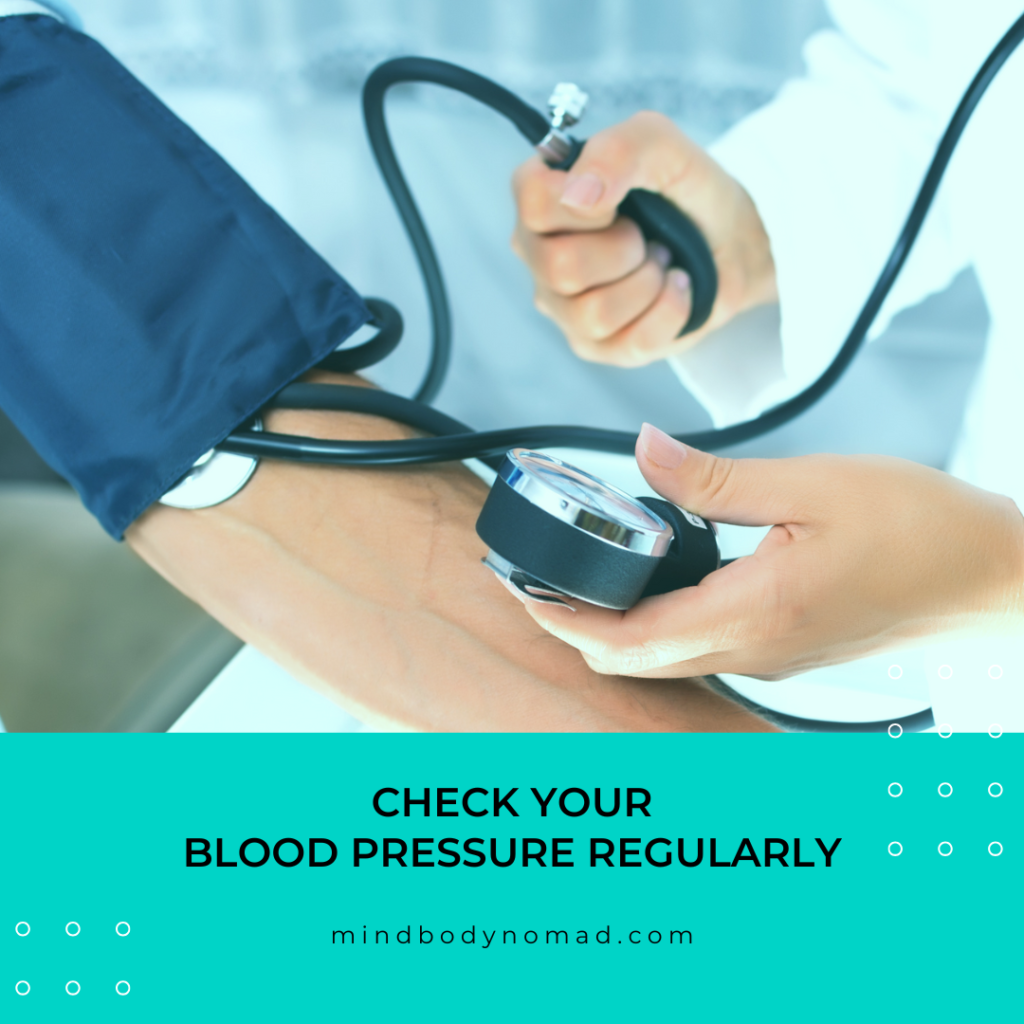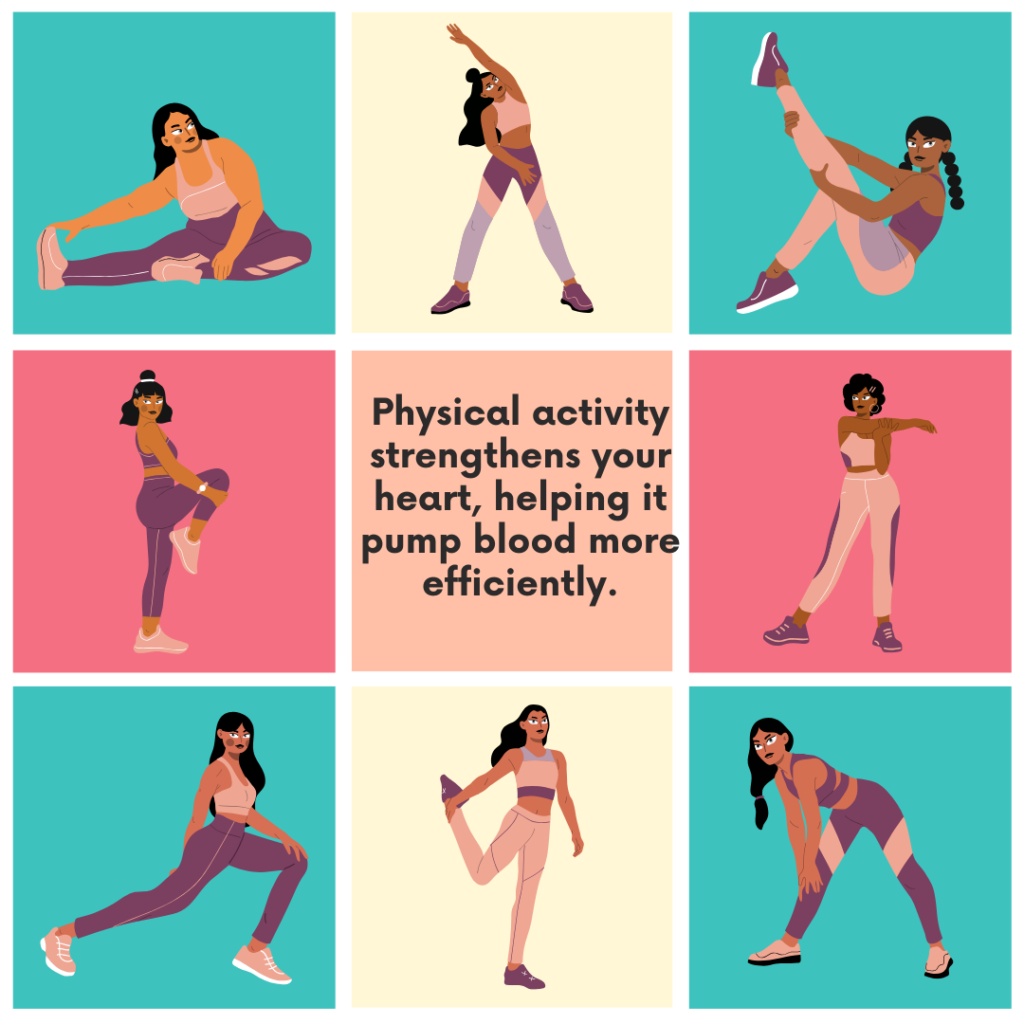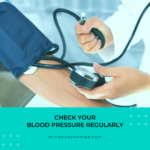Blood pressure is an important indicator of your overall health. It reflects the force of blood against the walls of your arteries as your heart pumps blood throughout your body. Maintaining healthy blood pressure is important because it directly affects your heart, brain, and overall health. In this article, we’ll learn what blood pressure is, why it’s important, how to measure it, and practical tips for managing it through diet and lifestyle.

What is Blood Pressure?
Blood pressure is the force exerted by circulating blood on the walls of your blood vessels. It plays a vital role in delivering oxygen and nutrients to the tissues and organs of the body, ensuring they function properly. Blood pressure is measured using two values:
- Systolic pressure (top number): The pressure when the heart beats and pushes blood through the arteries.
- Diastolic pressure (bottom number): The pressure when the heart is at rest between beats.
For example, if your blood pressure is 120/80 mmHg, the systolic pressure is 120, and the diastolic pressure is 80.
Why is Blood Pressure Important?
Blood pressure plays a key role in delivering oxygen and nutrients to your organs. Maintaining normal blood pressure is essential because both high and low blood pressure can lead to serious health problems:
- High blood pressure (hypertension) can increase the risk of heart disease, stroke, kidney problems, and eye issues.
- Low blood pressure (hypotension) can cause dizziness, fainting, and in severe cases, shock or organ failure.
Why Should We Take Care of Blood Pressure?
Managing your blood pressure is crucial for preventing long-term health complications. Uncontrolled blood pressure can lead to:
- Heart disease (e.g., heart attacks, heart failure)
- Stroke
- Kidney disease
- Eye damage and vision loss
- Cognitive decline and dementia
Keeping your blood pressure within a healthy range reduces your risk of these life-threatening conditions.
How to Measure Blood Pressure
Blood pressure is measured using a device called a sphygmomanometer. You can measure it at home using an automated digital monitor, or you can visit a healthcare professional. Here’s how to measure it accurately at home:
- Rest for 5 minutes before measuring.
- Sit in a chair with your feet flat on the floor and your arm supported at heart level.
- Place the cuff on your upper arm and follow the device instructions.
- Record the reading and note the time of day.

What is Normal Blood Pressure?
- Normal blood pressure: Less than 120/80 mmHg
- Elevated blood pressure: 120-129/<80 mmHg
- Stage 1 hypertension: 130-139/80-89 mmHg
- Stage 2 hypertension: 140 or higher/90 or higher mmHg
- Hypertensive crisis: Higher than 180/120 mmHg (Seek immediate medical attention)
What to Eat for Normal Blood Pressure
A balanced diet plays a crucial role in maintaining healthy blood pressure. Foods that help include:
1. Fruits and Vegetables
Rich in potassium, which helps regulate blood pressure.
- Bananas
- Spinach
- Avocado
- Sweet potatoes
- Oranges

2. Whole Grains
High in fiber and beneficial for heart health.
- Oats
- Brown rice
- Quinoa
- Whole wheat bread
3. Lean Proteins
Promote heart health without raising blood pressure.
- Chicken
- Fish (especially salmon and mackerel, which are high in omega-3)
- Legumes and lentils
4. Low-fat Dairy
Provides calcium, which helps control blood pressure.
- Low-fat milk
- Yogurt
- Cheese
5. Nuts and Seeds
Rich in healthy fats and magnesium.
- Almonds
- Walnuts
- Flaxseeds
- Chia seeds
What to Avoid for High Blood Pressure (Hypertension)
If you have high blood pressure, avoid or limit these foods:
- Salt (Sodium)
Excess sodium causes water retention, raising blood pressure.- Avoid processed foods, canned soups, and salty snacks.
- Sugary Foods and Drinks
Lead to weight gain and increase the risk of hypertension.- Limit sodas, candies, and desserts.
- Saturated and Trans Fats
Raise cholesterol levels, contributing to heart disease.- Avoid fried foods, processed meats, and fast food.
- Alcohol
Increases blood pressure when consumed in excess.- Limit to one drink per day for women and two for men.
- Caffeine
Can temporarily spike blood pressure.- Limit coffee, energy drinks, and soda intake.
What to Eat for Low Blood Pressure (Hypotension)
If you have low blood pressure, focus on these foods to boost it:
- Salty Foods
Increase sodium intake to raise blood pressure.- Pickles
- Olives
- Salted nuts
- Fluids
Dehydration lowers blood pressure, so stay hydrated.- Water
- Coconut water
- Herbal teas
- Foods Rich in Vitamin B12 and Folate
Prevent anemia, which can cause low blood pressure.- Eggs
- Fortified cereals
- Leafy greens
- Small, Frequent Meals
Prevent blood pressure from dropping after eating.- Eat five to six small meals throughout the day.
Effects of Blood Pressure on Health
High Blood Pressure (Hypertension)
- Increases the risk of heart disease, stroke, and kidney damage.
- Can lead to aneurysms, vision problems, and cognitive decline.
Low Blood Pressure (Hypotension)
- Can cause dizziness, fainting, and shock.
- May lead to falls and injuries, especially in older adults.
Types of Blood Pressure
- Primary (Essential) Hypertension
No identifiable cause, but linked to genetics, age, and lifestyle. - Secondary Hypertension
Caused by underlying conditions like kidney disease or hormonal disorders. - Orthostatic Hypotension
A sudden drop in blood pressure when standing up. - Postprandial Hypotension
A drop in blood pressure after eating.
How to Maintain Normal Blood Pressure
Maintaining normal blood pressure is essential for overall health and reducing the risk of heart disease, stroke, and other complications. By incorporating the below habits into your daily routine, you can maintain normal blood pressure and protect your long-term health. Here are effective strategies to help you keep your blood pressure within a healthy range:
1. Adopt a Heart-Healthy Diet
Your diet has a significant impact on blood pressure. Focus on:
- Fruits and Vegetables: Rich in potassium, which helps regulate blood pressure.
Examples: Bananas, spinach, oranges, avocados. - Whole Grains: These are high in fiber and support heart health.
Examples: Oats, brown rice, quinoa. - Lean Proteins: Promote cardiovascular health.
Examples: Chicken, fish, and legumes. - Low-fat Dairy: Provides calcium, which is important for blood pressure control.
Examples: Yogurt, low-fat milk, cheese. - Healthy Fats: Include nuts, seeds, and olive oil.
Limit:
- Salt (sodium)
- Sugary foods and drinks
- Saturated and trans fats
- Processed foods
2. Exercise Regularly
Physical activity strengthens your heart, helping it pump blood more efficiently. Aim for:
- 150 minutes of moderate-intensity exercise per week, such as:
- Brisk walking
- Cycling
- Swimming
- Jogging

3. Maintain a Healthy Weight
Being overweight increases the risk of hypertension. Losing even a small amount of weight can help lower your blood pressure.
4. Manage Stress
Chronic stress can contribute to high blood pressure. Try:
- Meditation or deep breathing exercises
- Yoga or tai chi
- Journaling or spending time in nature
- Engaging in hobbies or activities you enjoy
5. Limit Alcohol Consumption
Excessive alcohol can raise blood pressure. Keep it within recommended limits:
- Women: No more than 1 drink per day
- Men: No more than 2 drinks per day
6. Quit Smoking
Smoking damages blood vessels and raises blood pressure. Quitting can significantly improve your cardiovascular health.
7. Stay Hydrated
Dehydration can cause blood pressure to drop. Drink plenty of water throughout the day.
8. Monitor Your Blood Pressure
Regular monitoring helps you track your progress and detect issues early.
- Use a home blood pressure monitor.
- Visit your healthcare provider for routine check-ups.
9. Get Enough Sleep
Poor sleep can negatively affect blood pressure. Aim for 7-9 hours of quality sleep each night.
10. Take Medications if Prescribed
If lifestyle changes aren’t enough, your doctor may prescribe medication to help control your blood pressure. Take it as directed and follow up regularly.
Conclusion
Blood pressure is a critical health marker that requires regular monitoring and management. By adopting a heart-healthy diet, staying active, managing stress, and avoiding harmful habits, you can keep your blood pressure within a healthy range. Prioritize your health today to enjoy a longer, healthier life!
For more health tips and lifestyle advice, explore other articles on mindbodynomad.com!

